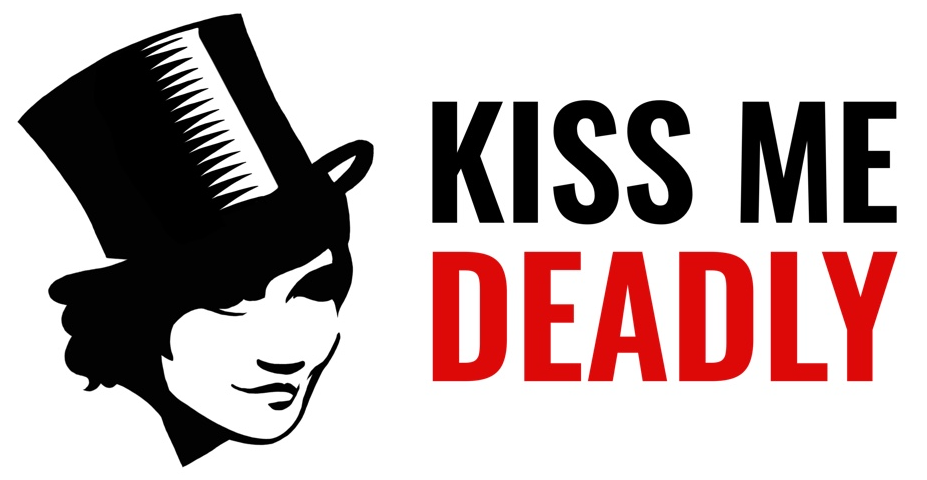Sophia is awesome. As part of her modelling name, she chose the surname of a WW2 operative, one of many women who completed dangerous missions on the continent during the Nazi occupation. Violette Szazbo fought to the end, was executed as a spy, and has no known grave.
So: amazing personal style, fascination with dangerous women and morbidity, intelligent and vocal. Doing a degree in biological anthropology. Yup, I'm not surprised Sophia found us.
And she shares chronic pain and fibromyalgia with me, so this should be a doddle, right? I know the background and symptoms inside out. And yet I've been avoiding this post all week (I got all my laundry done, though, and visited two factories and the workshop in Sheffield).
I was wrong and it's not easy. It's been too difficult to talk about it this year; there's just too much of it. I recently got bollocked by my family for not letting them know enough, and I was a bit . . . ummm, it's negative fun to talk about and also, you DO know that I can't get to the shops or call people or deal with the post office, you just don't actually want to remember it. It's much more psychologically comfortable for all of us to see what I CAN do, and not think about all the things I can't. Plus, I look fine.
The younger you are when you get ill the more of a disconnect there is between looking fine and what you feel like on the inside. Here's Sophia and I, talking animatedly about pasties that won't flipping well stay on, and Violet Szabo. Would you guess that I had to spend the day thinking carefully every time about whether I really needed to go up and down the stairs? That we had to schedule this shoot around hospital procedures? That it took me a week to unpack because I was so tired?
Probably not, and that is why if you ever do any sort of care work, therapy, social work, health assessments, anything of that ilk, you'll get checklists. Checklists because we ALL like to focus on what we can do, what is there, and we're very bad at seeing the gaps, absences and missing bits in people and their lives.
The mechanisms behind fibromyalgia, chronic pain and fatigue are not really understood. If you rock up at the doctors saying you're strangely tired and hurt all over, they will screen you for a billion things, and if none of those come back positive, then very broadly speaking, if you have more pain and inflammation, you get thrown in the fibro bucket, and if you have achy muscles and no inflammation, or are predominantly bizarrely exhausted by the smallest of things rather than being mostly in pain, you get a S.E.I.D.S/M.E/C.F.S label.
As you can imagine, with this being a diagnosis of exclusion, the chances are that not everyone with these labels actually has the same thing going wrong, even though we share symptoms. Both labels are mostly given to women, and it's amazing how little attention is subsequently paid to the issue, given the extensive debilitation. There's wide variation in functioning, and some of us fake a full life much better than others (hi!) but broadly speaking, it's like living with serious heart disease, AIDS, or similar. These things aren't necessarily a death sentence, but they are life-limiting, that is, you must limit what you do when you have them. Expect lifestyle changes and symptom management a-go-go.
The UK government is especially invested in defining these things as psychosocial, which you can probably imagine I am very, very angry about. 
For Sophia, as with everyone with fibromyalgia, pain is the prominent symptom; usually burning and aching pain.
Your body has nerves all over it that feed sensory information back to the brain - far more than the five senses you got taught in school, by the way. There are two types of pain nerves, one set for long, achy, slow pain, and the other for "JFC OW!" fast pain. You seriously need these nerves. Very, very occasionally someone gets born without them, or more often they get damaged, and you would not believe how complicated it is living without them; you do yourself no end of damage quite absent-mindedly.
But, in the same way, that you can end up with none, or damaged nerves that don't spark enough, you can have too many (there's considerable evidence that this is what might be behind my vulvodynia, chronic genital pain) or they can get overactive. Plus of course, sometimes we just develop problems in our body that SHOULD cause pain, but we don't know what they are yet. Just think how long it took to sort out various forms of Multiple Sclerosis, or what was causing stomach ulcers (yes, it's not stress).
The pain nerves go up the dorsal horns of the spine (that'd be the knobbly bits) and into what we call 'the pain gate' in your brain. If you have pain, you'll be familiar with the fact that the pain gate doesn't ONLY accept messages from pain nerves. You can mess about with what it lets through; some drugs do this in various ways, including caffeine. Equally, swearing, temperature, pressure and lots of other things will impact whether you feel more or less ow. Arguably, chocolate helps. Doctors tend to argue that folks with chronic pain probably have a problem in the brain/pain gate rather than there actually being something wrong. People with pain frequently disagree.

Doctors also like to ask "are you more tired or more in pain?" which I always thought was a bloody stupid question, because being in pain will wear you out, and being tired will mean your pain gate lets more ow signals through.
You can get used to living with pain. You habituate, and you manage. You limit yourself (which causes its own problems); you tense up, which causes a feedback loop and creates more pain. You can fail to realise its there until it's taken away. I found this with stomach pain, with genital pain, and with all over pain and it's frankly fricking weird and probably hard to believe.
You also don't realise how much pain messes with your head. It's hard work. It requires your brain's resources. Two years ago I started getting a topical anaesthetic shot into my bloodstream and the 2-3 months it gives me of pain relief are astonishing. When it hits, overnight I go from mostly not really moving and struggling to think, to being able to impulsively run down a street and write an essay (admittedly not very often).
Of course, when I start to feel it run out . . . it's a Flowers for Algernon situation. Go read it and make yourself cry, I promise it's worth it.
As well as making you tired and not think very well (with the added joy of the brain fog that fibro and M.E seem to have, independent of pain; days where it's like trying to think with a head full of treacle), pain will give you mental health problems. Most chronic illnesses will. You go through loss, trauma, relationships break down, the future is uncertain, and any notions you had about the life being meaningful or fair can get stripped away.
But pain, in particular, is a system evolved to tell you SOMETHING IS WRONG. Now, imagine that whatever you do, there's a bit of your brain saying SOMETHING IS WRONG all the time. Yes, it's a recipe for depression (even if you didn't already have it from the loss), or anxiety (even if you didn't have it already from the existential uncertainty), or some variant of post-traumatic stress disorder. And that is why there is what appears to be a dismissive comment about "just one or two mental health issues" in the video . . . just a bit of gallows humour amongst us tired and in pain types, I'm afraid!
Want to help?
Learn about spoons! You can try living like us yourself, here.
And matchsticks. Short and fiery for the win.
Remember that how people look tells you NOTHING about their health, or what they can do, or what it's like living in their body (honestly, this works for everyone).
Donate to UK Fibromyalgia to help them campaign for better diagnosis, support, and research.
Watch and support Time for Unrest.
And of course as always - chat to us in the comments. What is your experience of pain?


